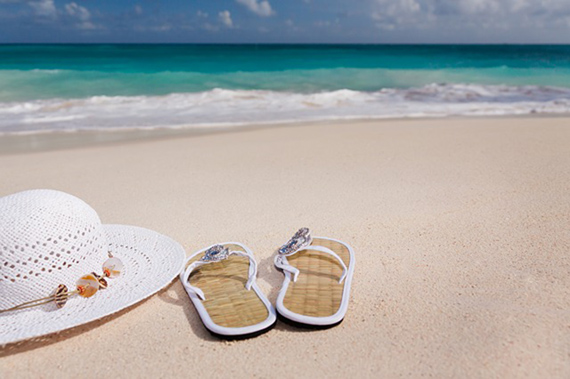


Australia's most comprehensive organic and natural directory
Blog / Health & Beauty
26 Nov 2014Tips for a Healthy Summer

Now that summer is finally here, our minds are preoccupied with sunshine, swimming, BBQ’s and spending lazy days on the beach.
In summer we are more active outdoors having fun with friends and family, which is wonderfully therapeutic for our body and mind and allows us to de-stress. However, summer also brings higher temperatures, more sun exposure, and more time spent eating (and drinking) out.
Below are some tips to survive the summer without sacrificing your health!
Stay Hydrated. Being more active and spending hours in the sun is a sure way to increase our demand for water and electrolytes. Drinking before you feel thirsty and filling up with pure water, fresh juice, kombucha and coconut water will help you to maintain a healthy electrolyte balance. You can also add a pinch of sea salt to your water to increase your electrolyte intake and eat foods with a high water and nutrient content, like fresh fruit, to prevent dehydration. Alcohol and coffee are diuretics and can contribute to dehydration so try to reduce consumption on the days that you plan to go for a hike or spend hours in the sun.
Eat in season. The nutrient content of food varies depending on which season it is harvested. A Japanese study found that spinach grown in winter had three times as much vitamin C as spinach that was grown in summer. It may be cheaper and easier to obtain locally grown seasonal organic produce, because food grown outside of its natural environment will have a greater need for pesticides and insecticides. This summer in Australia you can focus on eating fresh berries, mangoes, peaches, watermelon, cucumber, celery, cauliflower, eggplants, tomatoes and plums. Shopping at local markets or by home delivery is a great way to buy seasonally grown organic food.
Swim in the ocean. As waves break on the shoreline they split air particles apart and cause the release of negative ions. Negative ions help to counteract the abundance of positive ions (also known as free radicals) in the environment which are released from TVs, computers, cell phones and air conditioners. They have been shown to boost antioxidant status and decrease depression and stress. Sea water contains minerals like sodium, potassium and magnesium which can be absorbed via the skin into the blood stream, and also has cleansing and anti-septic properties which may benefit conditions like acne, eczema and psoriasis.
Use safe Sunscreen. Peak-hour sun exposure for 10-20 minutes per day, without sunscreen, is important for optimal vitamin D levels but going unprotected for much more than that will lead to sun damage. Wearing sunscreen, sunglasses, and covering up during the hottest hours of the day will help you to avoid lasting damage. The problem with using commercial sunscreen brands is that they typically use chemicals to block out the UV rays.
The Environmental Working Group (EWG)has assessed several UV-blocking chemicals and found that sunscreens containing oxybenzone, octinoxate, and homosalate have the highest toxicity factor as they are absorbed through the skin and have endocrine disrupting effects. The least toxic sunscreens are those containing titanium dioxide and zinc oxide as they have a mineral base and do not penetrate the skin. Mineral sunscreens also have a broader spectrum protection as they block out UVA and UVB rays, while chemical sunscreens typically just block out UVB rays.
When choosing a safe sunscreen you want to look for one that uses a mineral base, does not contain parabens or vitamin A, and has ingredients that are natural. This is especially important for babies and children as their skin is more sensitive Eco Tan, Eternal Source, Aalaveda Lifestyle Co, and Nourished Life all provide EWG-approved, safe sunscreens.
Sources
http://seasonalfoodguide.com/australia-general-seasonal-fresh-produce-guide-fruits-vegetables-in-season-availability.html
http://www.vic-japan.gr.jp/english/news_release/press_36.html
http://nutritionreview.org/2013/04/positive-health-benefits-negative-ions/
http://www.livestrong.com/article/400377-what-are-the-health-benefits-of-swimming-in-sea-water/#ixzz2cYEVRHPq
http://www.ncbi.nlm.nih.gov/pubmed/22612478
http://www.ewg.org/2014sunscreen/the-trouble-with-sunscreen-chemicals/








